We met up with Julie Potash, a.k.a. Hesta Prynn, longtime songwriter and the go-to DJ for brands and women’s events around the world, and riffed about her experience at performing arts camp, why some people can’t handle an all-female hip hop crew that’s part Tori Amos / part Questlove, the most surprising (and challenging) things about being a mother, and what’s to love about Jewish tradition.
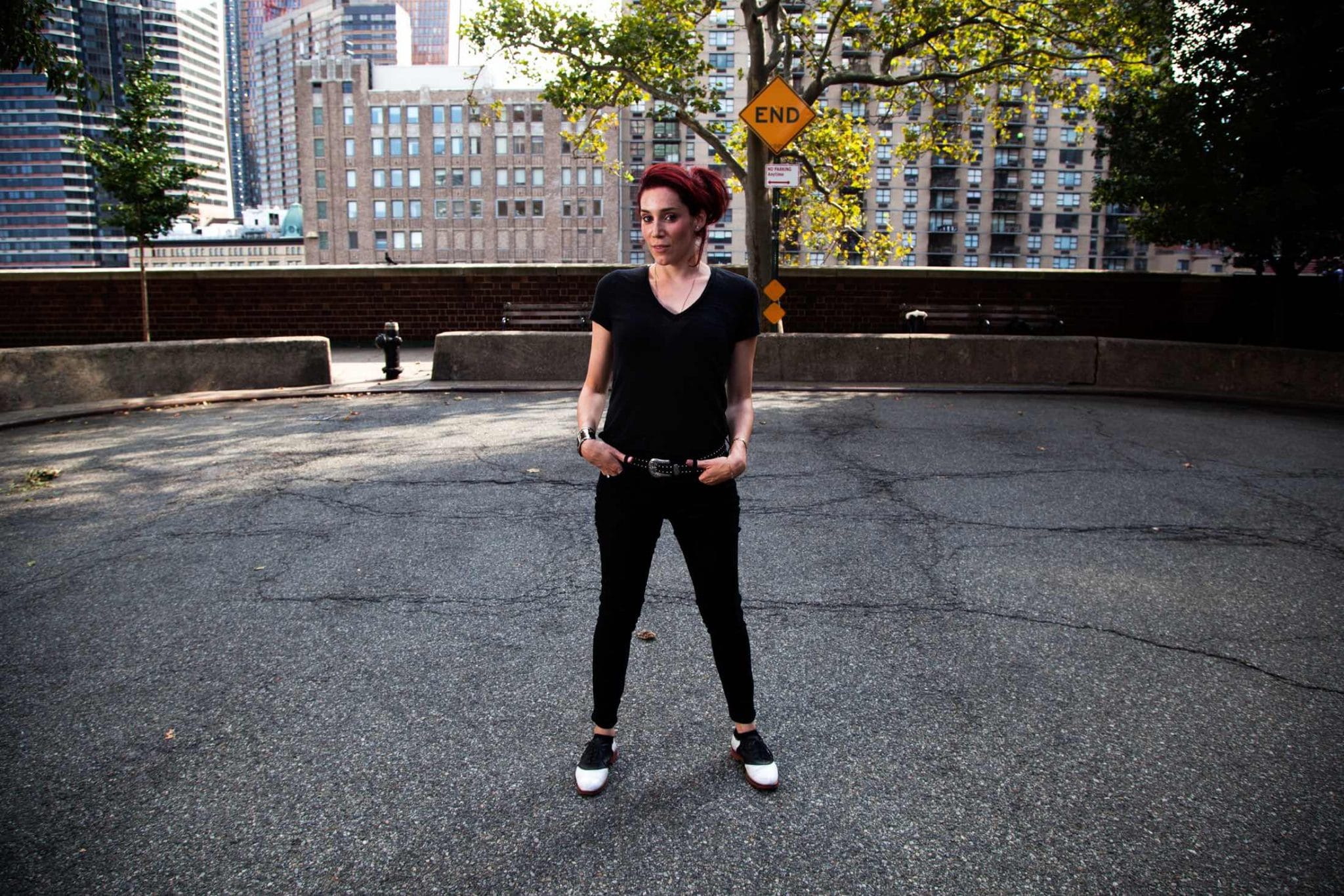
You’ve got your DJ name, Hesta Prynn, and your given name, Julie. What’s the meaning of each?
My bandmates came over one day, and they were like, “We’re gonna be an all-girl, hip-hop group,” and I said, “Let’s not name it something over-the-top feminist like Hesta Prynn,” which was the hip hop version of Hester Prynne of The Scarlet Letter. They were like, “That’s your MC name,” and I said, “Word.”
My mom was nerdy, so she named me Julie, because she thought it was the name of a pretty cheerleader. Can you imagine?
What were you like as a kid?
I was really into the performing arts. I wanted to be an actress. I did professional plays when I was in high school and performed 6 nights a week.
I listened to music all the time.
I would get home from school and listen to rap records and drive around with whoever had a car and listen to rap records. That wasn’t the coolest thing to do where I was from. I remember I had The Chronic, and some boy that I liked asked, “Why do you have this?” And I had a Lil’ Kim record, and the same boy was like, “Did you buy this?”
I was really into rap music, I was into Classic Rock, I played piano, I was super into Tori Amos and still am. I was interested in how things led one to another. I’m still interested in how metal became grunge. I was always reading the liner notes – where did they make this? How do I get there?
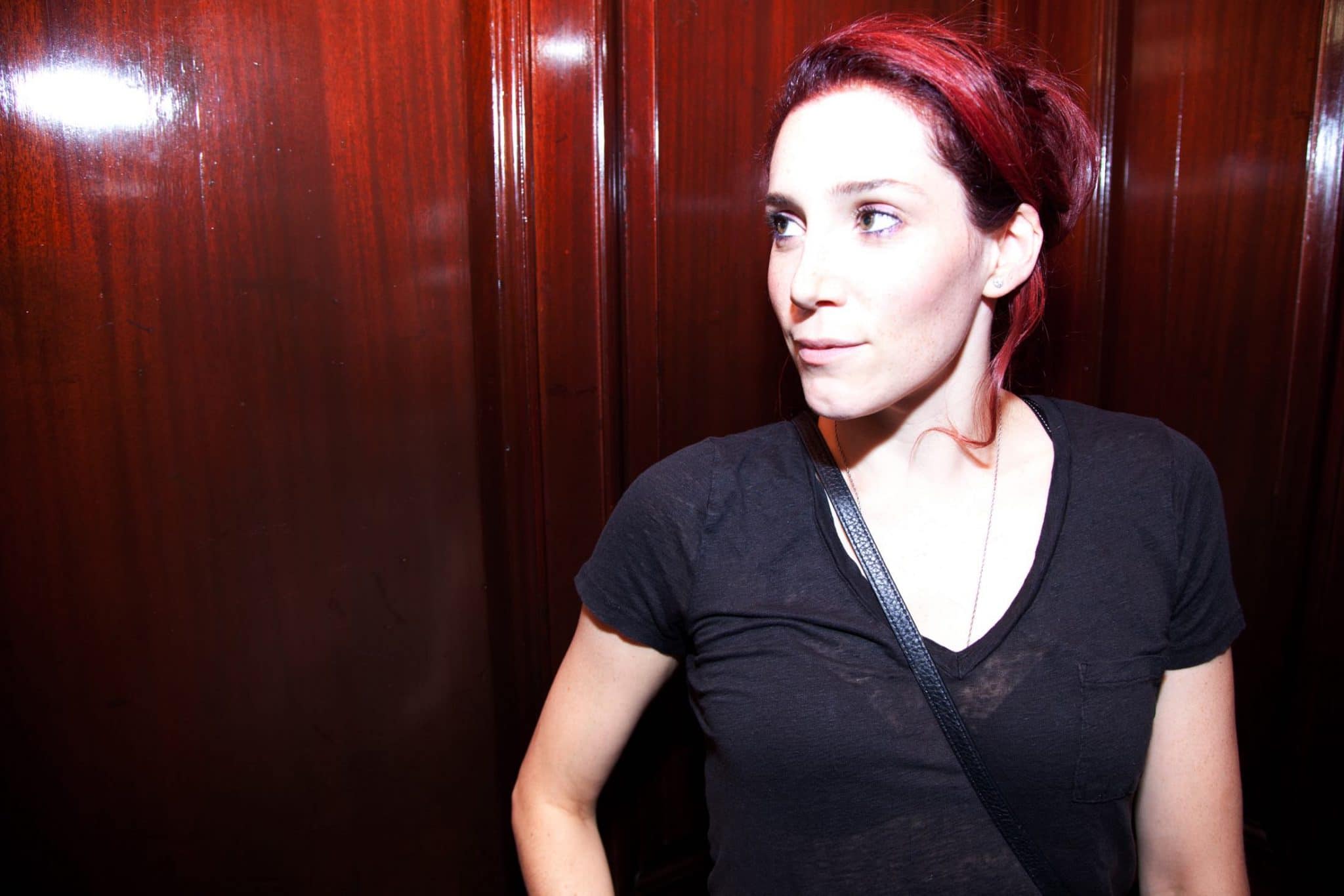
How did your dream career evolve from actor to musician and DJ?
I went to French Woods, which was an arts camp. It was a place to go where you were cool if you were good at your art. If you were good at musical theater at my camp, you were cool. If you were good at photography, you were cool.
I went there for acting, but I was mostly into music. I remember getting people into The Police. It was retro then. I played piano, and we wrote a song about the summer and performed it.
It was at French Woods where I learned for the first time that I was more interested in the creation and the collaboration and the behind-the-scenes.
I didn’t want to be the star.
Then, when I was in a band, we toured with The Roots for 2 years all over the world. Ahmir, Questlove, has the biggest vinyl library on the East Coast, and he taught us how to make records looping vinyl. During that time was really when I realized I didn’t want to be a performer. I loved the studio. I was the person who stayed late, the person who was curious and insatiable.
What do you think people saw in you or in your band that made them want to mentor you?
We were really doing it for – not to sound like a reality show – the right reasons. We were 3 feminist women. Two thirds of us were Jewish. We were suburban-ish. We were using the craft of writing rhymes as if we were girls writing journals. It was very spoken word, very Ani DiFranco, but we loved rap music because of where we were from.
I was raised on HOT 97. I love hip hop, that’s just who I am.
Our heroes really saw that. They saw how honest we were, they saw that we had something to say, and they saw that we didn’t really want anything. We were doing it because it was a way for us to express ourselves.
The hate that we got, the backlash, was from a lot of white boy fans of hip hop music who were angry that there was not a place for them in it. People weren’t really having conversations about white privilege in pop culture 10 years ago the way they are now. We were falling over ourselves to be politically correct and careful in everything we said and to be respectful, and I think that people appreciated it.
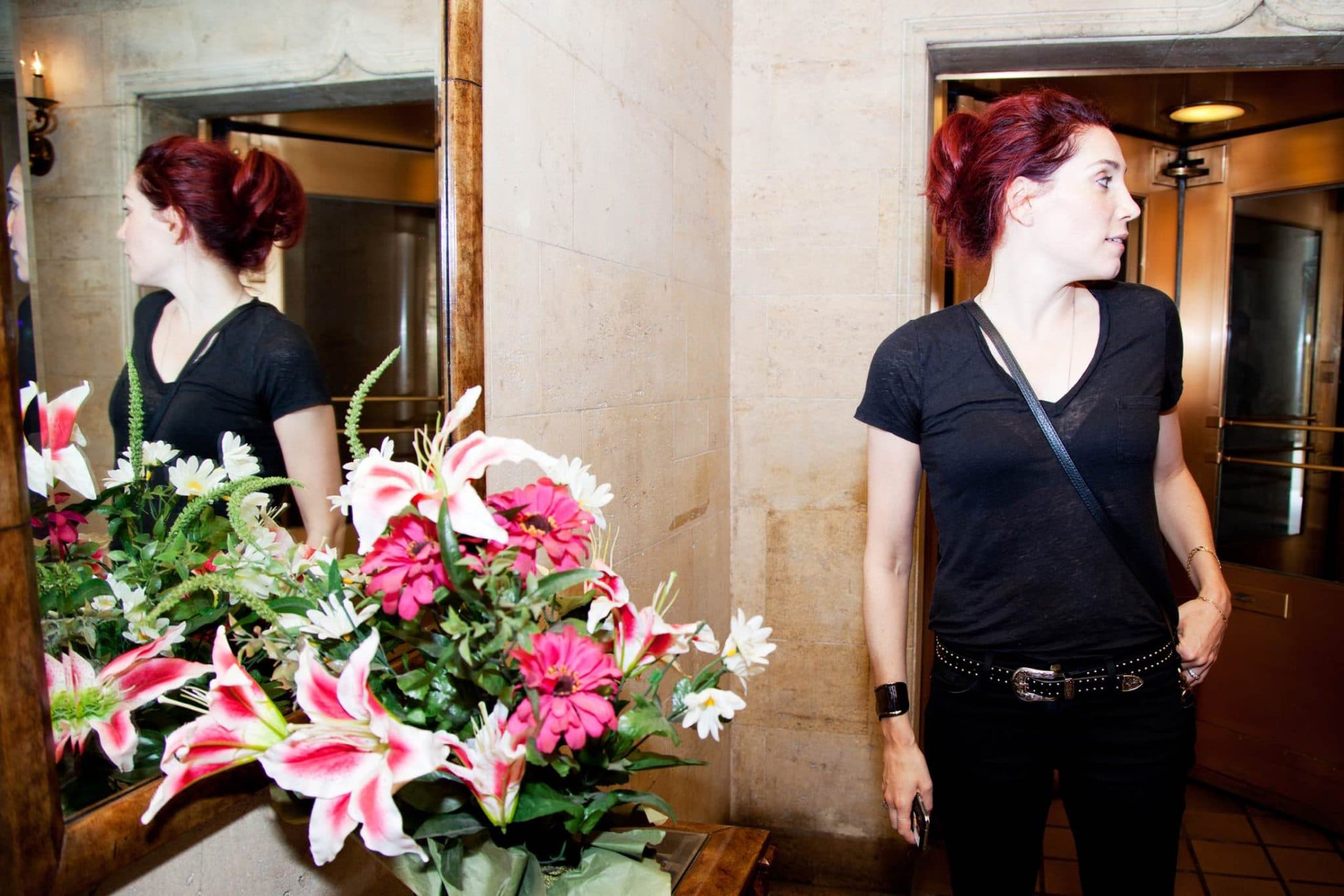
How did Judaism play a role in your upbringing?
I grew up in a Jewish ghetto in Long Island. Everybody was Jewish or Italian.
I had a bat mitzvah. My mom is from Queens. She told stories about how her seder was 3 hours long and it was in Hebrew or Yiddish.
There was a lot of “God will punish you if…” Sometimes, I have a hard time saying no, because I’m blessed in so many ways, and I have to count my blessings, because, if I don’t, God will punish me.
When you went to college, how did life change for you?
I went to college in Ohio. The only city that I’d ever been to was New York, so I thought all cities were the same. I went to Cleveland 3 days after I got to Ohio and realized it was not what I thought it was going to be.
It felt like nobody was Jewish. There were swastikas in certain places. When I traveled with the band, we saw a lot of that, too. I’ve always felt and still do feel very uncomfortable in the middle of the country. I feel self-consciously Jewish.
I came back to New York to go to Tisch, because I wanted to go to a conservatory. I definitely feel the most at home here. When you’re Jewish, this is where you live. I would live in any major city. A coastal city. That’s kind of it. That’s the only place I would feel safe. Just keepin’ it real.
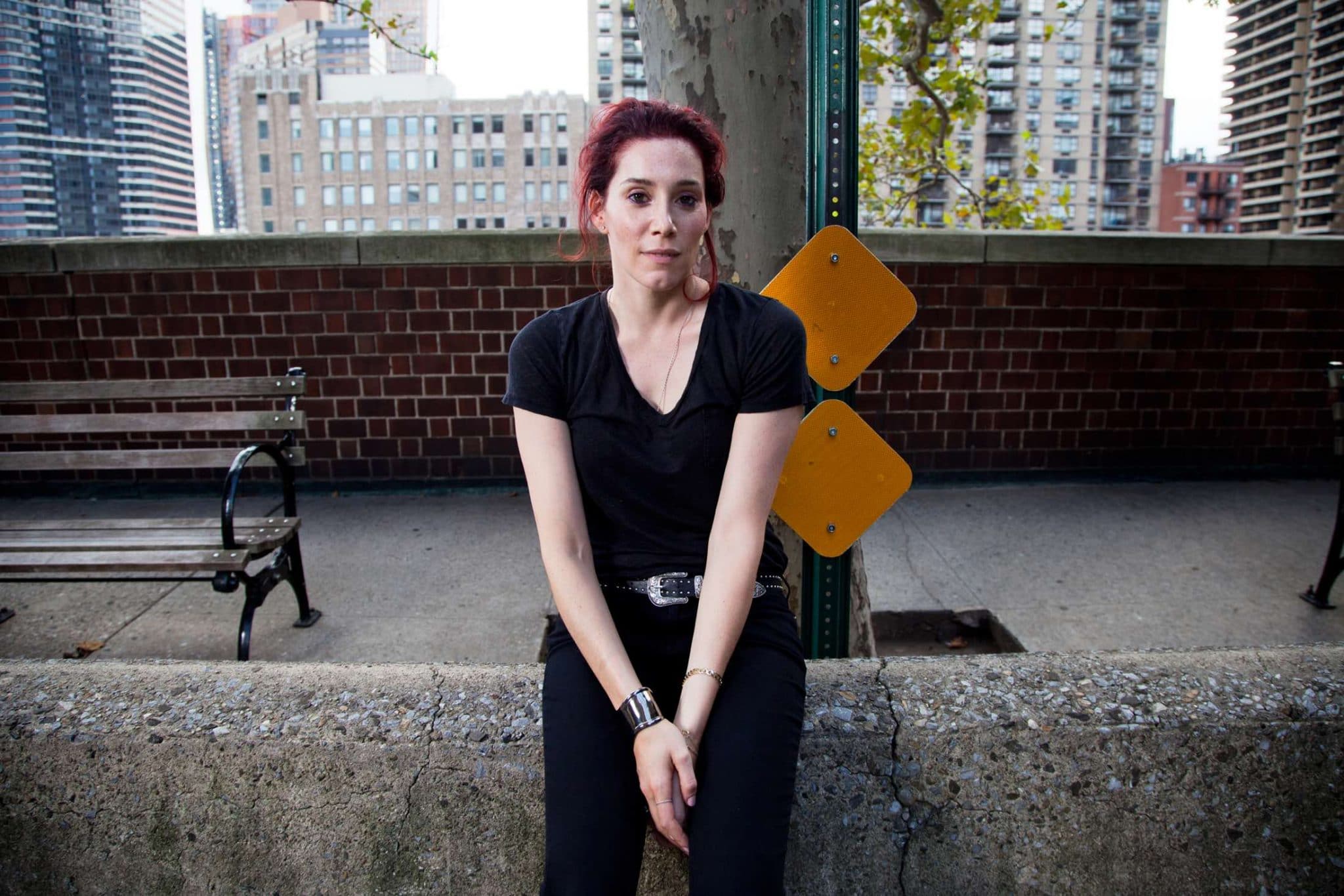
What has been your favorite age so far?
I think that my favorite age will be in my early 40s when things settle a little bit.
The first half of your life, you have no choices about. Then, you spend years processing all the things that you had no choices about, which is where I am now. Then, you get to a place, maybe when you’re 40, I hope, where you’re like, “Now I’m gonna start living in the moment a little bit more and I’m over stuff and I’m stronger.”
How did you and your husband meet? What do you love about him?
When the band broke up, I was ghostwriting other songs. I wrote my own solo EP as a writing exercise. I wanted to make a music video. I asked my friend, “How am I going to get a music video that is next level?”
Then – I swear on my life this is true – my phone beeped, and it was a text message, and it said something like, “Hey, Julie, this is Randy. I heard your song ‘Can We Go Wrong‘ and I want to make a video for you. Can we talk?”
I was like, “Randy Slavin? From high school?” I knew he had become a filmmaker, but I wasn’t friends with him. I thought he lived in Williamsburg, and, literally, we lived across the street from each other. I met him at a bar. I walked in and texted my friend, “Randy Slavin is so hot. Did you know that?” She’s like, “Duh.”
We went to Central Park every day at magic hour for a week and shot 13,000 photos and weaved them together as a stop motion piece. We fell in love doing it.
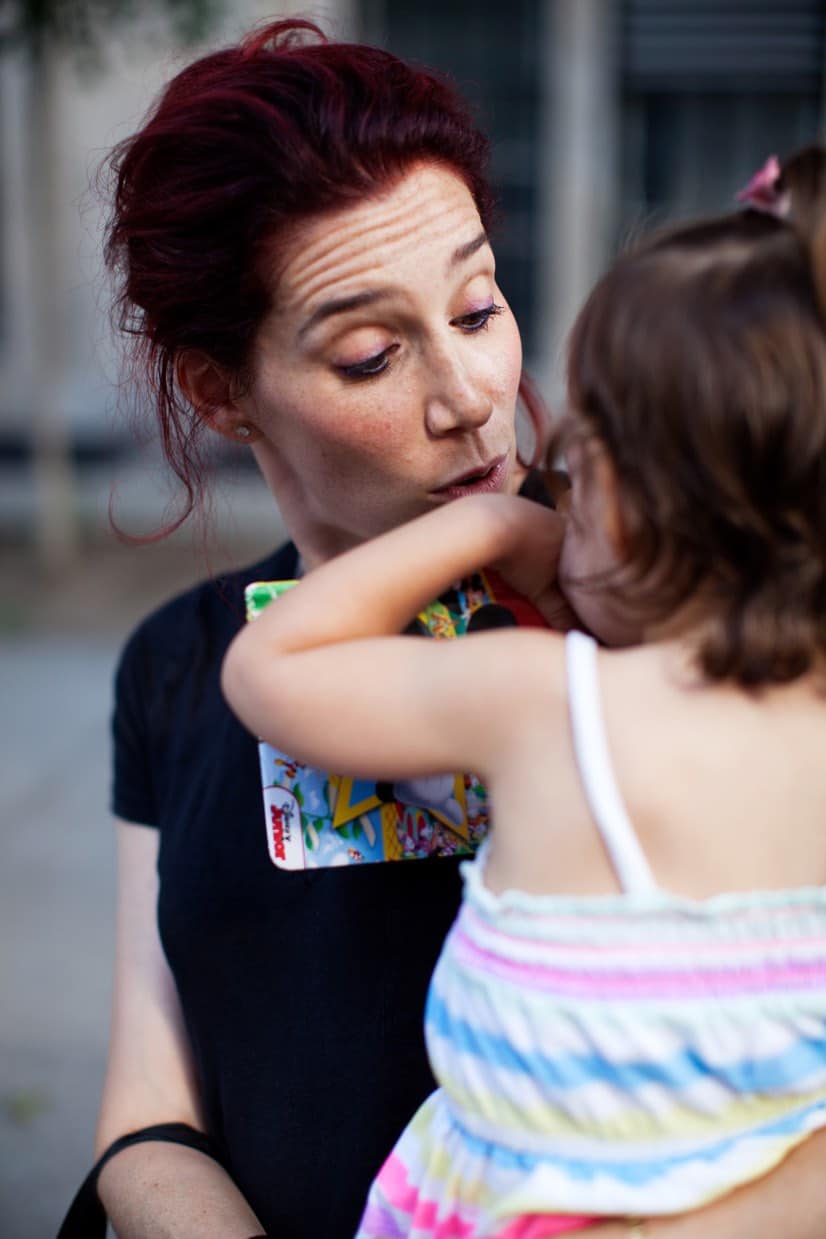
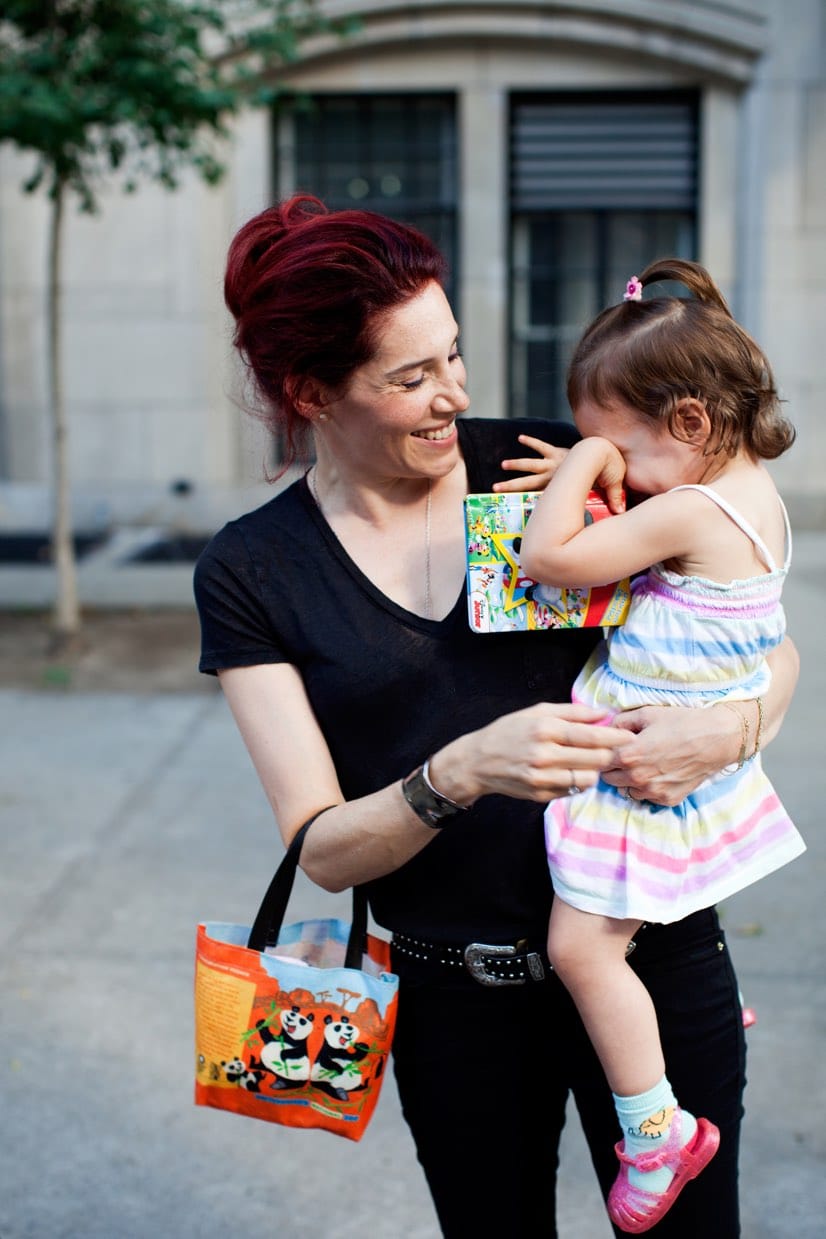
What’s surprised you the most about being a mom?
It’s awesome having a kid, but this shit is no joke! It’s very profound and beautiful and challenging and intense.
What’s your daughter’s name and why?
Zoe Max. Max was my grandpa. He died while I was pregnant. My grandparents were married for 70 years. I always really liked Zoe. We had some other names that I liked from a Crosby, Stills, and Nash song – I wanted to name her Guinnevere. My husband was like, “Yeah, we’re gonna have an Israeli baby named Guinnevere…”
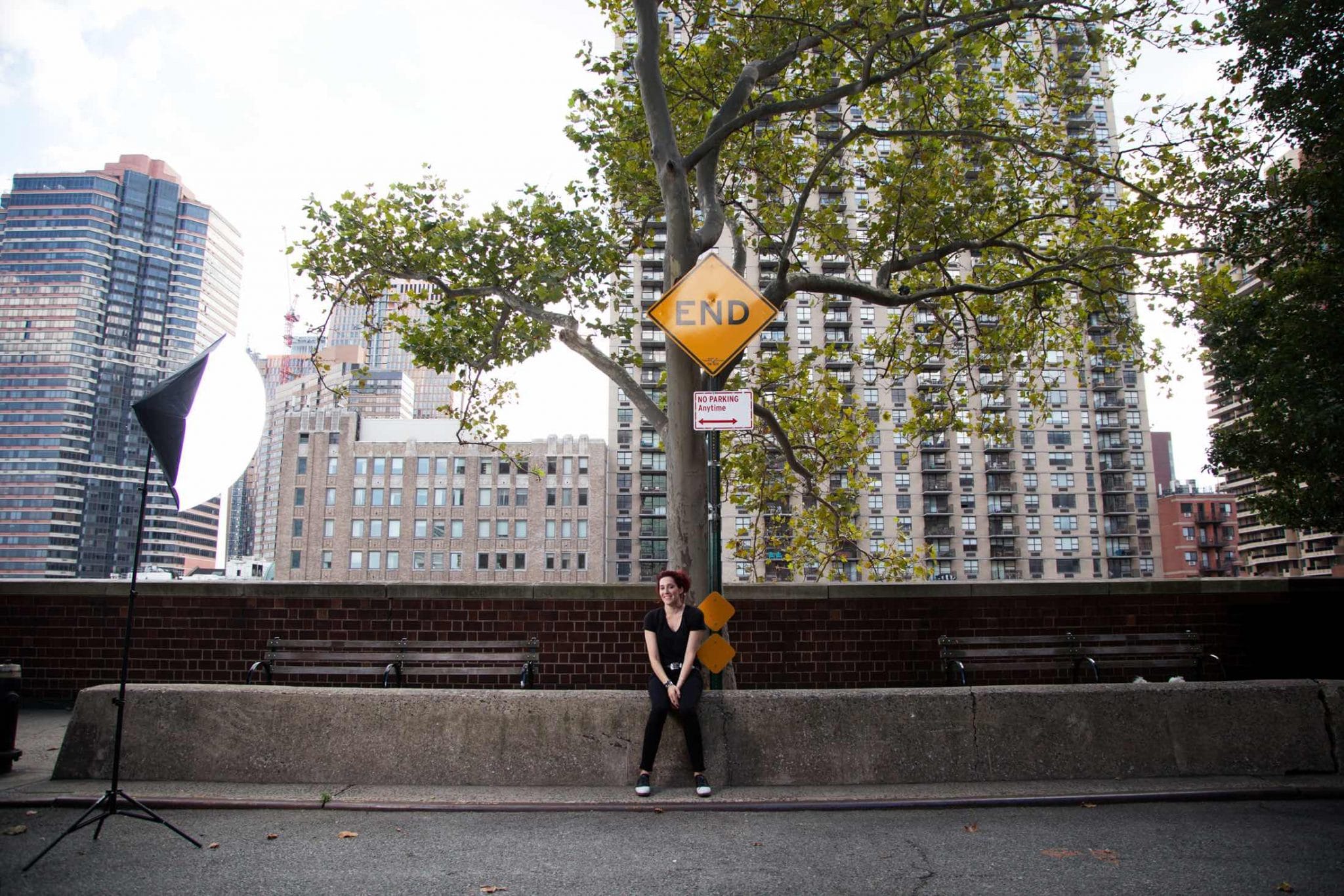
How does Judaism fit into your lives now?
We were going to the Kabbalah Centre for 2 years before I got pregnant with Zoe, and we did Shabbat there every week, which was really nice. We had a community. There were some things about it that didn’t really work for me after I had a kid, and that’s disappointing, because I really miss doing Shabbat.
We’ll light candles sometimes. I try to speak to my daughter in Hebrew when I can. We do the holidays with family.
How do you a raise a Jewish kid in New York without it being about labels and buying stuff? Without it being about going to Solomon Schechter? I’m not really sure.
It’s definitely a place where we’re lacking, but I’m not trying to run out and join a synagogue. That’s not what we’re missing.
Favorite Jewish food?
Bagels and lox?
That didn’t sound very convincing.
A dry, flakey cake? Matzo ball soup. All the Jewish foods are my favorite foods.
At a shiva, there are Jews everywhere, they’re in your face, you can’t hear yourself think, and they’re shoveling food into your mouth and talking your ear off and you’re so tired and all you want to do is be alone, but they don’t let you be alone, and, then, when they let you be alone, there’s been a week between, and you can survive. The Jews have that on lock.
Photos by Jake Fromm
Thank you for visiting Arq!
Arq is no longer publishing new content. We hope you'll enjoy our archived posts.